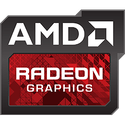Tuesday, April 23rd 2013

AMD Makes a Breakthrough in Improving Frame Latency
AMD has been criticized by some tech publications over Radeon HD 7000 series posing higher frame-latency over NVIDIA GeForce chips, even in cases where AMD's chips offer higher frame-rates. "Frame latency" or "frame time" was purported as a metric of the same importance as frame-rates, in graphics card reviews. Various essentially identical methods were used to show that AMD Radeon GPUs yield higher frame latency (time taken for frames drawn by the GPU to make it to the display) than NVIDIA GeForce ones, even in cases where AMD's chips offer higher frame-rates. AMD has apparently made a significant breakthrough in improving frame latency.
In January, AMD made its first official response to early tests that showed Radeon GPUs to pose higher frame latency. In its defense, AMD stated that frame-latency issues are not a hardware design flaw, and can be ironed out by optimizing drivers to the redesigned memory controllers on GPUs based on its Graphics CoreNext architecture. Sources told us that AMD is ready with its first prototype drivers that fix frame latency issues. These drivers are pre-alpha, and are made available to select industry partners, with an adequate level of competence and expertise, since a week now. After AMD takes feedback from these partners, the company will begin rolling out the first beta drivers, followed by WHQL-signed ones.
In January, AMD made its first official response to early tests that showed Radeon GPUs to pose higher frame latency. In its defense, AMD stated that frame-latency issues are not a hardware design flaw, and can be ironed out by optimizing drivers to the redesigned memory controllers on GPUs based on its Graphics CoreNext architecture. Sources told us that AMD is ready with its first prototype drivers that fix frame latency issues. These drivers are pre-alpha, and are made available to select industry partners, with an adequate level of competence and expertise, since a week now. After AMD takes feedback from these partners, the company will begin rolling out the first beta drivers, followed by WHQL-signed ones.
42 Comments on AMD Makes a Breakthrough in Improving Frame Latency
Frame latency refers to the period of time between that work being done, and quite obviously lower FPS = "higher" latency.
80 FPS = 12.5 ms latency, avg.
40 FPS = 25.0 ms latency.
It's things like that that really need to be explained, discussed, etc, when it comes to this topic, and that's why I've taken a seat in the peanut gallery on this topic. It is far too complicated to simply say "OMG!!?!!". AMD's made a statement about what they are doing, and I'm happy with that.
That said, you really cannot compare frame latency from one solution to the next, directly, without first filtering the data because of things like this, and that's not happened as of yet.
I think, personally, when it comes to frame latency, we need to only explore VARIATIONS, as this is what is upsetting to the end user(at least with myself and other users I have had the time to talk to at length).
And I'm not posting just for your benefit, as I said, this is a complicated subject, and how it's presented to the end user is of a critical nature. I don't mean to refute or deny or affirm anything..merely discuss.
I personally seem to be pretty sensitive to this, but I don't have ANY Nvidia cards, so I am not familiar with how their cards work, or how smooth of an image they present. Frankly, I don't really care too much either. I only care about AMD's solution, since that's the cards I bought. I am very very curious about Nvidia's cards though, let me tell you.
But as a gamer, I trust Nvidia more for many years now, because playing on Geforce feels much more smoother for me, there is no other way around this, it just does, period (Last time I tested was two weeks ago when I had a 7850 for a few days). I hope these new drivers will bring change tho,:toast:
Oh and while I'm on the subject, some of those tests on Intel HD Graphics as well...